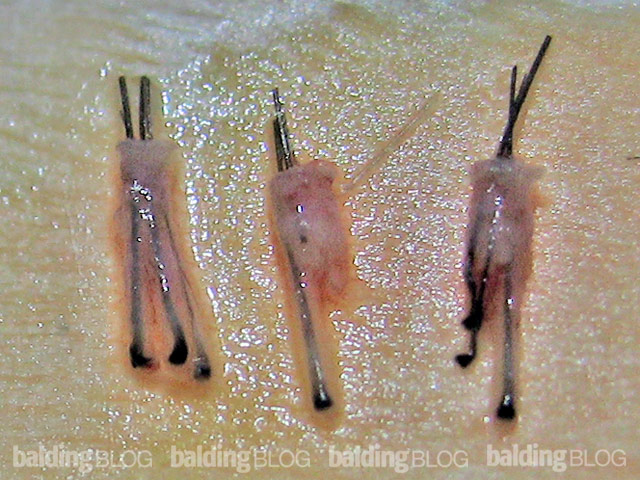I’ve been reading your blog and find it a great probable one of the best sources on the web for transplant facts! Thanks!
You recently replied to one user about Shock loss. I’m considering a transplant for my receding hair line at the temples. Though am worried it may damage my surrounding hairline which is healthy and in abundance. If shock loss were to occurr, is there a high risk it could be permanent? When would it kick in – immediately after the operation? And would propecia help several wks after the op?
Shock loss is a dilemma for some of the hair transplant patients. It usually happens in the first 1 to 3 months following the procedure and usually is not reversible in men. Bear in mind that shock loss happens mostly to the hair follicles that have some degree of miniaturization to them and the strong terminal (normal) hairs are quite resistant to shock loss. Several methods have been suggested to eliminate this problem. Many physicians say that topical agents like minoxidil and GraftCyte prevent shock loss, although there is no supporting evidence for this and no such claims in the manufacturer’s product inserts or claims. I had actually studied this use of these two medications on one side of the head many years ago and found no difference between the two sides.
Finasteride (Propecia) would perhaps be the most advantageous medication for reducing shock loss, if patients start taking it before the time of surgery. My recommendation to you is to start finasteride if you haven’t already. It is not well documented in any formal literature, but I believe starting the medication at least two weeks before the procedure is most valuable. If you miss the two week window, starting it anytime will be better than not taking it. The rate of shock loss has significantly dropped in our practice in the years since we have used Propecia, and I believe it has to do with us strongly recommending its use before surgery to all of our male patients.

